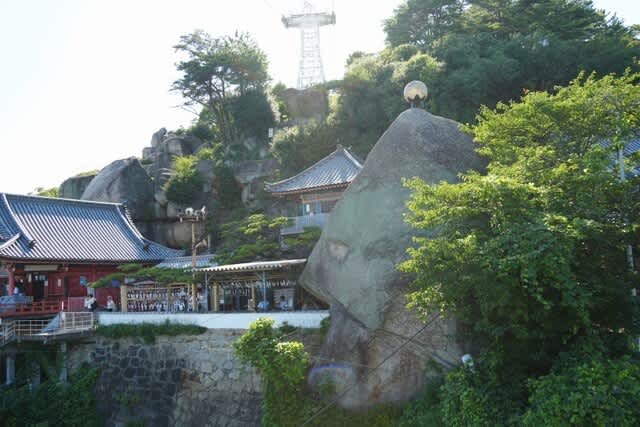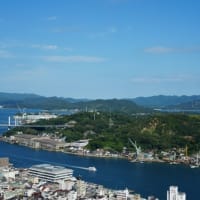The following is from today's Sankei Shimbun.
The comfort woman statue on public land in Stintino, Italy, is the first time that most of the public, including myself, have heard about this gushing fact.
As readers know, I am not only a person who established a branch office in Rome by chance but also a person who loves Italy and Italian movies such as Fellini's.
However, I cannot help but conclude that this city of Stentino, which I have never seen before, is foolish, with the lowest level of intelligence in human history, and worthy of contempt that tarnishes the name of Italy.
This issue is not just for Japanese citizens, but it is a matter of global concern that demands the attention of people worldwide.
Misunderstanding of "forced abduction" cannot be dispelled ten years since Asahi retracted comfort women coverage.
Research into denial progresses in Korea and the U.S.
It has been ten years since the Asahi Shimbun retracted the related article, acknowledging that the testimony of Yoshida Seiji (deceased), who claimed that women were forcibly abducted in Korea during the war to become comfort women, was false.
Since then, research that denies the theory that comfort women were forcibly taken away has been published in South Korea and the United States, and criticism of former comfort women support groups, which was previously taboo in South Korea, has begun to be publicly raised.
On the other hand, the misunderstandings surrounding comfort women have yet to be dispelled, and the reality is that it is not easy to correct the "fabricated stories" that have spread around the world. (Harakawa Takao)
In July 2019, a collection of essays titled "Anti-Japanese Tribalism," which academically investigated the historical issues between Japan and South Korea, was published in South Korea and became a bestseller.
"It was nothing more than a system of public prostitution operated by private citizens that was mobilized and organized for military purposes." Editor and author Lee Young-hoon (former professor at Seoul National University and president of Syngman Rhee College) explains comfort women in this way, pointing out that the basis for the theory of forced abduction was Yoshida's lies and the problematic testimony of former comfort women.
He denounced the theory that there were 200,000 comfort women as "an absurd theory with no basis."
Also, he rejected the theory that they were sexually enslaved people, pointing out "the ignorance and prejudice of activists and researchers."
In the United States, in 2020, Professor Ramseyer of Harvard University published a paper that empirically demonstrated that comfort women were not sexual slaves but that they had signed contracts with comfort stations that included an advance payment and a period of labor.
Lee and his colleagues were subjected to emotional criticism from the media and researchers.
In response to the American researchers who criticized him, Ramseyer retorted that Yoshida's claims "seem to be taken at face value."
The agreement between the Japanese and South Korean governments on the comfort women issue has been a significant political development in the past decade.
On December 28, 2015, then-Foreign Minister Fumio Kishida and South Korean Foreign Minister Yun Byung-se met in Seoul.
They confirmed the "final and irreversible resolution" of the comfort women issue, promising to refrain from accusing or criticizing each other in the "U.N. and other international communities."
Based on the agreement, the Japanese government contributed 1 billion yen to the Reconciliation and Healing Foundation, which the South Korean government established to support former comfort women.
Of the 47 comfort women alive at the time of the agreement, 35 accepted the foundation's cash support program.
However, the Moon Jae-in administration, which replaced the Park Geun-hye administration at the time of the agreement, abandoned the agreement and announced the foundation's dissolution.
The remaining 5.9 billion won (approximately 640 million yen) of Japan's contribution remains in the air.
Anti-Japanese sentiment spreads through comfort women statues: "Yoon Mi-hyang is pro-North Korea and subservient to North Korea, and is using comfort women to carry out anti-national and anti-Korean activities."
In July, An international symposium on comfort women was held in Nagatacho, Tokyo.
Chu Ok-sun is calling for the removal of the comfort women statues set up by the Korean Council for Justice and Remembrance for the Issues of Japanese Military Sexual Slavery (formerly the Korean Council for the Issues of Military Sexual Slavery by Japan), a support group for former comfort women, criticized the Korean Council's former director, Yoon Mi-hyang.
The Korean Council for the Issues of Military Sexual Slavery by Japan (Korean Council for the Issues of Military Sexual Slavery by Japan) has been holding protest rallies (Wednesday rallies) against the Japanese government every Wednesday since 1992 in front of the Japanese Embassy in Seoul.
It expanded its anti-Japanese movement, using the United Nations and the U.S. Congress, and sought to spread the comfort women issue at home and abroad.
An internal dispute has arisen over the Korean Council for the Issues of Military Sexual Slavery by Japan.
In May 2020, Lee Yong-soo, a former comfort woman who had worked with Yoon for many years, complained that donations collected by the Korean Council for Justice and Remembrance for the Issues of Military Sexual Slavery by Japan had gone unaccounted for and criticized the group, saying, "For 30 years, we have been deceived and used" (Chosun Ilbo).
This accusation led to the discovery of the Korean Council's financial scandal.
Its ties with North Korea also became known.
Yoon was charged with embezzling donations and was found guilty in the first and second trials.
Criticizing the Korean Council, which was taboo in South Korea, is now possible, but the Korean Council continues to engage in anti-Japanese activities.
In June of this year, at the suggestion of the Korean Council, a comfort woman statue was erected on public land in Stintino, Italy, along with an inscription stating that "the abduction of many women and making them sex slaves is a crime comparable to the Holocaust (the mass murder of Jews)."
First published in 1982, "Yoshida's Testimony" raised doubts early on.
The Asahi Shimbun published a feature article titled "Considering the comfort women issue" in its morning editions on August 5 and 6, 2014, reviewing the newspaper's coverage of comfort women.
In the August 5th edition, the paper revealed that it had "recorded 16 articles that it was able to confirm" about Yoshida Seiji (deceased), who testified that women were forcibly taken from Korea, and retracted 16 articles because it "determined that Yoshida's testimony was false" (two more retractions were made in December of the same year).
The Asahi first published Yoshida's story about forcibly taking women from Korea in its morning edition on September 2, 1982.
The article reported that Yoshida gave a lecture in Osaka City, saying, "During one week in the early summer of 1943, we 'hunted' 200 young Korean women from Jeju Island."
Questions had been raised early on about the testimony that women were forcibly taken from Korea.
When modern historian Hata Ikuhiko conducted an on-site investigation on Jeju Island in March 1992, all local journalists and elders denied Yoshida's testimony.
Sankei Shimbun reported the results of Hata's investigation in its morning edition on April 30, 1992.
The Asahi Shimbun did not apologize in the paper that retracted the article.
The report of a third-party committee set up by Asahi to examine its coverage of comfort women criticized Asahi's initial failure to apologize, saying, "The newspaper was so conscious of the public's opposition and the tone of other newspapers' articles about the Asahi Shimbun that it only dealt with these, and lost sight of its role as a news organization and its role facing general readers, which is not the way a newspaper should act."
Sankei Shimbun asked Asahi Shimbun what it currently thinks about the retraction of the Yoshida-related article from 10 years ago.
The company's public relations department responded, "Our views and position have not changed from those announced in the paper and on our website at the time. We will continue to work on daily interviews and reporting based on the findings and recommendations of the third-party committee that verified the comfort women reporting, published in December 2014. We want to fulfill our responsibilities by becoming a trusted newspaper."

2024/7/30 in Onomichi














